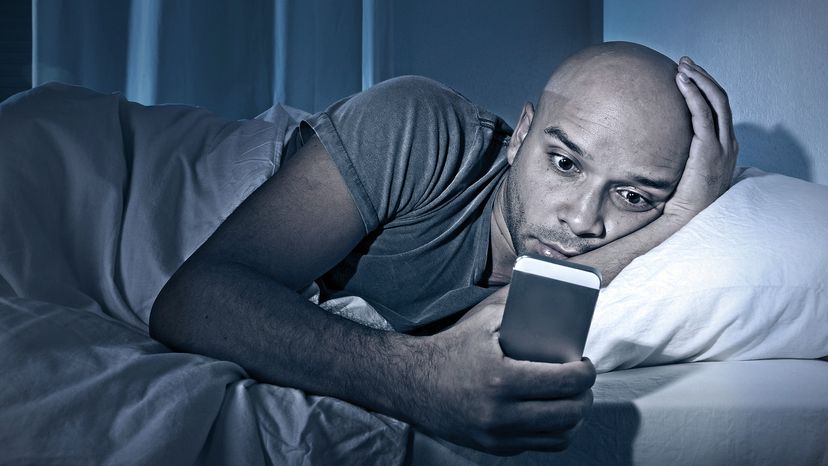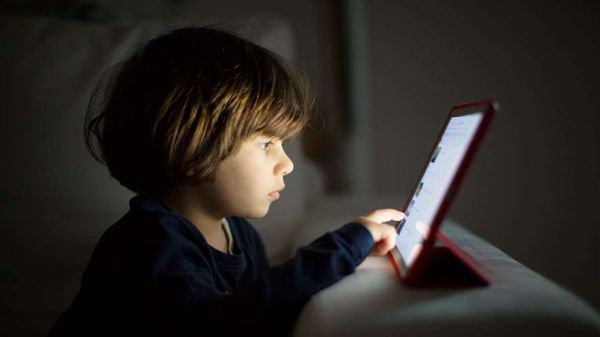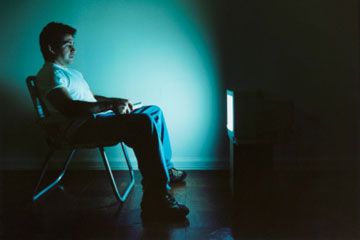
We humans love to stare into our smart devices. We gaze for hours — more than 11 hours a day — at our computers, smartphones, tablets and televisions. Not surprisingly, during the coronavirus pandemic, that figure has shot up even more. Is all this staring bad for us? It might be, mainly because as we stare at our devices we are exposing ourselves to blue light.
Blue light is a type of electromagnetic radiation with a very short wavelength that produces a high amount of energy. While it's true that light can damage your eyes under certain circumstances, there's no scientific evidence suggesting that blue light is harmful to our eyes. But many people still think it is, which is why blue light-blocking glasses are so popular. So do the glasses work? Some people swear by them.
Advertisement
"Everyone is very concerned that [blue light] may be causing damage to the eye, and it's a valid concern, but there's no evidence it may be causing any irreversible damage," Dr. Rahul Khurana, clinical spokesman for the American Academy of Ophthalmologists, told Business Insider.
Blue light exposure is nothing new. In fact, the sun is the largest source of blue light. Moreover, blue light is also present in fluorescent and LED light. But if blue light isn't harmful, then why are we constantly rubbing our peepers when we're looking at our screens? The answer is eyestrain: More than 60 percent of people experience problems associated with digital eyestrain. And blue light, it seems, isn't the cause. Instead, our eyes are so strained because most of us blink less when we stare at our digital devices.
So if eyestrain is the real issue, blue light-blocking glasses are probably useless. However, wearing them could potentially help you get a good night's sleep. That's because blue light, research has shown, affects your body's circadian rhythm, your natural wake and sleep cycle. According to Harvard researchers, any kind of light — including blue light — can tamp down your body's ability to secrete melatonin, a hormone that helps you sleep. Poor sleep is linked to a whole host of health problems.
Interested in buying a pair of blue-light glasses for yourself or for your kids? You can find them everywhere, from the hipsters at Warby Parker (add them to any frame for $50) to affordable options online or at big-box stores like Walmart.
You also can address your blue light exposure by tweaking your smartphone or tablet's display settings to night shift or something similar, or you can download an app that filters out blue light, too. Lastly, you can purchase blue light filters for your laptops or monitors as well, although some buyers complain that these filters can add unwanted reflection.
HowStuffWorks may earn a small commission from affiliate links in this article.
Advertisement

